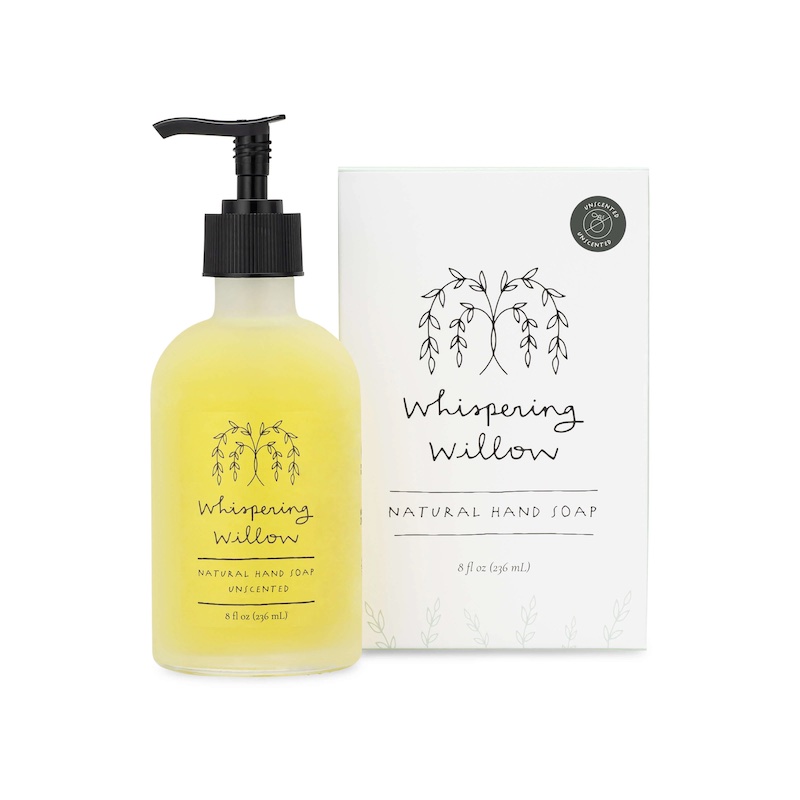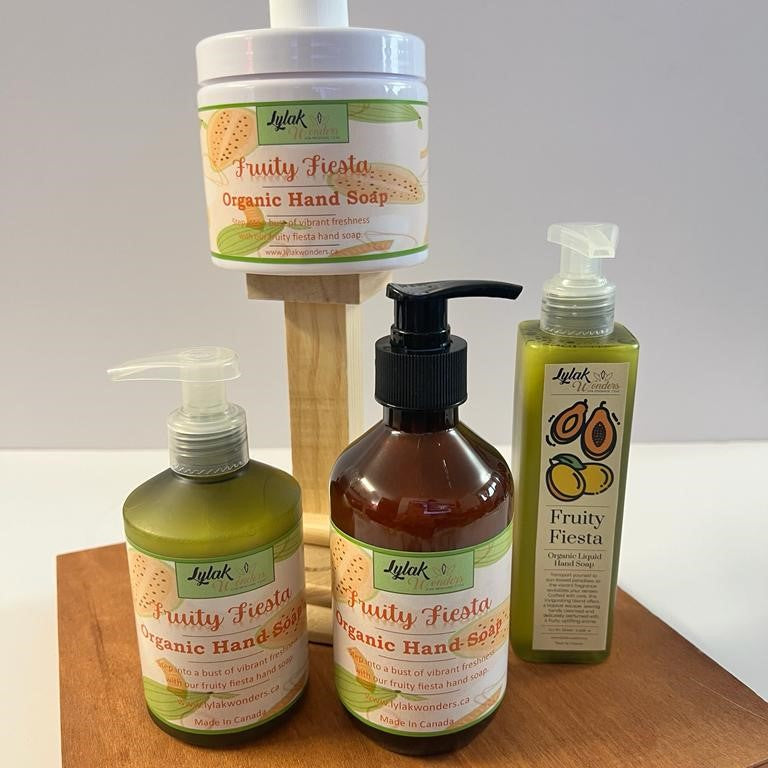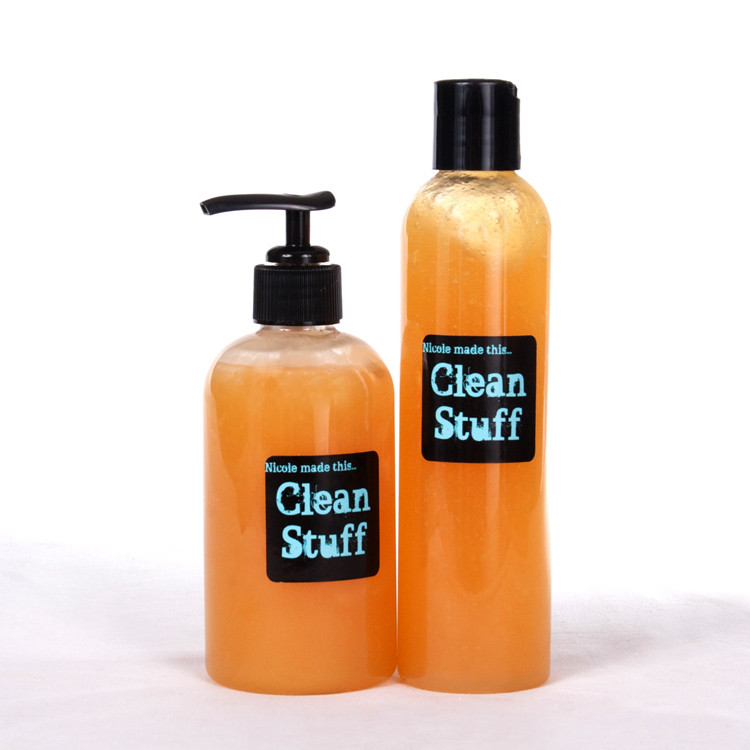Benefits of Using Organic Hand Soap
Incorporating organic hand soap into your daily routine can offer numerous benefits. Not only does it promote healthier skin, but it also aligns with eco-conscious lifestyle choices. Below we explore the advantages of using organic hand soap.
Gentle on Skin
Organic hand soap is acclaimed for its mildness. Natural ingredients provide a soft cleansing experience. Without harsh chemicals, organic hand soap nurtures the skin’s natural balance. This gentleness makes it suitable for all skin types, even sensitive ones. It diminishes the risk of skin irritation and dryness often caused by conventional soaps.
Key components like glycerin, derived from plants, draw moisture into the skin. This helps keep hands soft and moisturized. Unlike synthetic detergents, organic hand soap respects and preserves the skin’s essential oils. With organic hand soap, cleanliness does not come at the cost of comfort.
Safe for the Environment
Switching to organic hand soap supports not just your health, but also the planet’s well-being. These soaps are crafted from biodegradable ingredients that won’t harm marine life or water quality when washed down the drain. The production process is usually more sustainable, with a lower carbon footprint compared to traditional soap-making practices.
The packaging for organic hand soaps often reflects the same environmental consciousness. It’s typically made from recycled materials and designed to be recyclable or biodegradable. By choosing organic hand soap, you’re reducing your ecological impact and promoting a cleaner, healthier environment.
Key Ingredients in Organic Hand Soaps
The effectiveness and appeal of organic hand soap lie in its key ingredients. These components are sourced from nature and provide a variety of soothing and healing properties to the skin.
Essential Oils
Organic hand soaps often contain essential oils. These oils add natural fragrances without using synthetic perfumes. Essential oils like lavender, peppermint, and tea tree oil provide calming scents. They also have antibacterial and antifungal properties. This helps in keeping the hands clean and hygienic. For example, tea tree oil is known for its strong cleansing features, and lavender for its relaxing scent.
Natural Plant Extracts
Apart from essential oils, these soaps include natural plant extracts. These extracts come from herbs, flowers, or fruits. They enrich the soap with vitamins and antioxidants. These nutrients help protect skin cells from damage. A common extract is aloe vera, which is famous for its moisturizing capabilities. Chamomile extract can soothe irritated skin, while calendula helps in healing. Plant extracts make organic hand soaps a nourishing choice for daily use.
How Organic Hand Soaps are Made
Creating organic hand soap is an art that blends natural ingredients with traditional methods. These methods ensure the final product retains its beneficial properties while being kind to the environment. Let’s look at the common techniques used to make organic hand soap.
Cold Process Method
The cold process method is a time-honored technique for soap making. It involves combining oils and lye without external heat. Makers carefully select oils, such as coconut or olive oil, based on their skin benefits. They mix them with lye to start saponification. This process transforms oils and lye into soap and glycerin. In cold process, the mix is poured into molds and takes weeks to cure. This patience pays off with soap that is gentle and rich in natural glycerin.
Melt and Pour Method
For those who prefer a quicker method, the melt and pour technique is ideal. This process starts with a pre-made soap base. Crafters melt the base and add chosen organic ingredients. Essential oils, herbs, and natural colorants personalize the hand soap. Once mixed, the soap is poured into molds and cools down. It solidifies within hours, making this method popular for easy customization and swift production.
Comparing Organic Hand Soap with Traditional Soap
When choosing between organic and traditional hand soaps, key differences arise that can affect your decision.
Ingredient List Differences
Organic hand soap comprises natural ingredients like essential oils, plant extracts, and glycerin derived from vegetables. These elements are mild and biodegradable, causing less harm to the environment and health. On the contrary, traditional soaps often contain synthetic chemicals such as sulfates, parabens, and artificial fragrances. These harsh constituents can be irritating to the skin and are not eco-friendly as they are not easily broken down in nature.
Impact on Skin Health
Organic hand soaps are gentle on the skin, promoting hydration and maintaining the skin’s natural oils. They suit all skin types, especially sensitive skin, reducing risks of irritation and allergies. Traditional soaps, made primarily for cleansing purposes, often compromise skin health. They strip away natural oils leading to dryness and can trigger allergic reactions due to synthetic additives. The choice of soap can significantly influence your skin’s condition and overall health. On this note, opting for organic hand soap proves to be a safer and healthier route for both skin and environment.
Top Organic Hand Soap Brands
When searching for organic hand soap, brand reputation plays an important role. The best brands embody the principles of sustainability, quality ingredients, and skin-friendly formulas. Below, we explore some top brands that are recognized for their commitment to eco-friendly and health-conscious products.
Review of Popular Choices
- Dr. Bronner’s Pure-Castile Liquid Soap: This versatile soap comes from a family-owned company known for its ethical approach. It uses organic and fair trade ingredients.
- Avalon Organics Glycerin Hand Soap: Avalon Organics crafts their soaps with plant-based elements and essential oils, offering a nourishing experience.
- EO Products Hand Soap: EO stands out with their aromatic blends and a commitment to no synthetic fragrances. Their soaps feature organic ingredients.
- The Honest Company Hand Soap: The Honest Company focuses on transparency and safety, creating soaps that are effective yet gentle on the skin.
- Seventh Generation Hand Wash: Noted for eco-conscious production, Seventh Generation provides hand soaps made with plant-based ingredients.
Each brand listed brings something unique to the table—from ethical sourcing to innovative formulations that cater to sensitive skin.
What Makes Them Stand Out
What sets these brands apart are their core values that align with responsible consumption:
- Eco-friendliness: They focus on biodegradable formulas that protect the environment.
- Quality Ingredients: High-grade organic ingredients are used for skin health.
- Cruelty-Free Practices: These brands often ensure that no animal testing is involved.
- Sustainable Sourcing: Fair trade and sustainable farming practices are prioritized.
- Social Responsibility: Many brands support various social initiatives and causes.
Choosing any of these brands means supporting businesses that are not just selling a product but also advocating for a healthier lifestyle and a sustainable future.
Where to Buy Organic Hand Soaps
Finding organic hand soap is easy if you know where to look. Both online and local stores offer an array of options to cater to your eco-friendly preferences. Let’s explore where you can purchase organic hand soaps.
Online Retailers
For a convenient shopping experience, online retailers are a top choice. They provide an ample selection of organic hand soap brands. You can read reviews, compare prices, and check ingredient lists, all from the comfort of your home. Look for retailers specializing in eco-friendly or natural products to find the best range. Remember to check the delivery options and search for sites that use minimal and recyclable packaging to uphold your sustainability values.
Local Health Stores
Shopping locally has its perks, such as supporting community businesses and reducing your carbon footprint. Many local health stores stock organic hand soaps. They often source from smaller, ethical producers. Besides finding quality soap, you can get firsthand advice and learn more about other eco-friendly products they might carry. Visit stores that emphasize natural skincare and ask staff for recommendations on the best organic hand soaps they have.
DIY Organic Hand Soap Recipes
Creating your own organic hand soap can be a fulfilling and eco-friendly project. It’s simple, cost-effective, and allows you to control the ingredients.
Basic Ingredients Needed
To start your DIY organic hand soap, gather these basic ingredients:
- Organic Castile Liquid Soap Base: A gentle and versatile component perfect for your soap base.
- Essential Oils: For natural fragrance; consider lavender, peppermint, or tea tree for their added benefits.
- Natural Plant Extracts: Like aloe vera for moisture, or chamomile for soothing properties.
- Organic Carrier Oils: Coconut or olive oil can nourish and hydrate the skin.
- Distilled Water: To dilute ingredients as needed for the right consistency.
- Vitamin E: Acts as a natural preservative and supports skin health.
- Natural Glycerin: To enhance the moisturizing effect of your hand soap.
Gather tools like a mixing bowl, measuring cups, spoons, and a soap dispenser.
Step-by-Step Guide
Follow this guide to make your organic hand soap:
- Mix the Soap Base: Pour the Castile soap base into the mixing bowl.
- Add Essential Oils: Start with a few drops of essential oil and adjust for scent strength.
- Incorporate Extracts and Oils: Add your chosen extracts and a teaspoon of carrier oil.
- Dilute with Water: If the mixture is too thick, slowly add distilled water.
- Stir in Glycerin and Vitamin E: These give your hand soap its moisturizing properties.
- Transfer to Dispenser: Carefully pour your homemade soap into a pump dispenser.
- Label Your Creation: Add a label with the date and ingredients list.
Enjoy using your own organic hand soap, knowing it’s safe for your skin and the environment.



